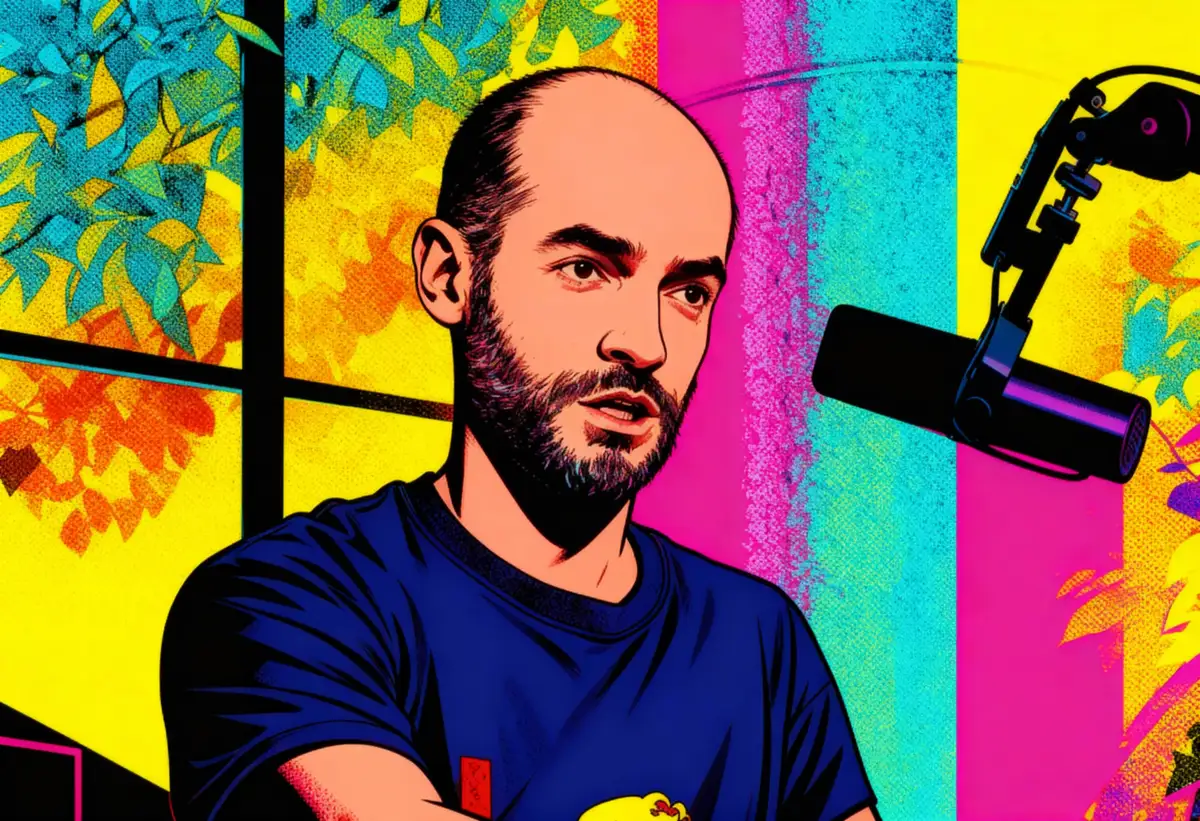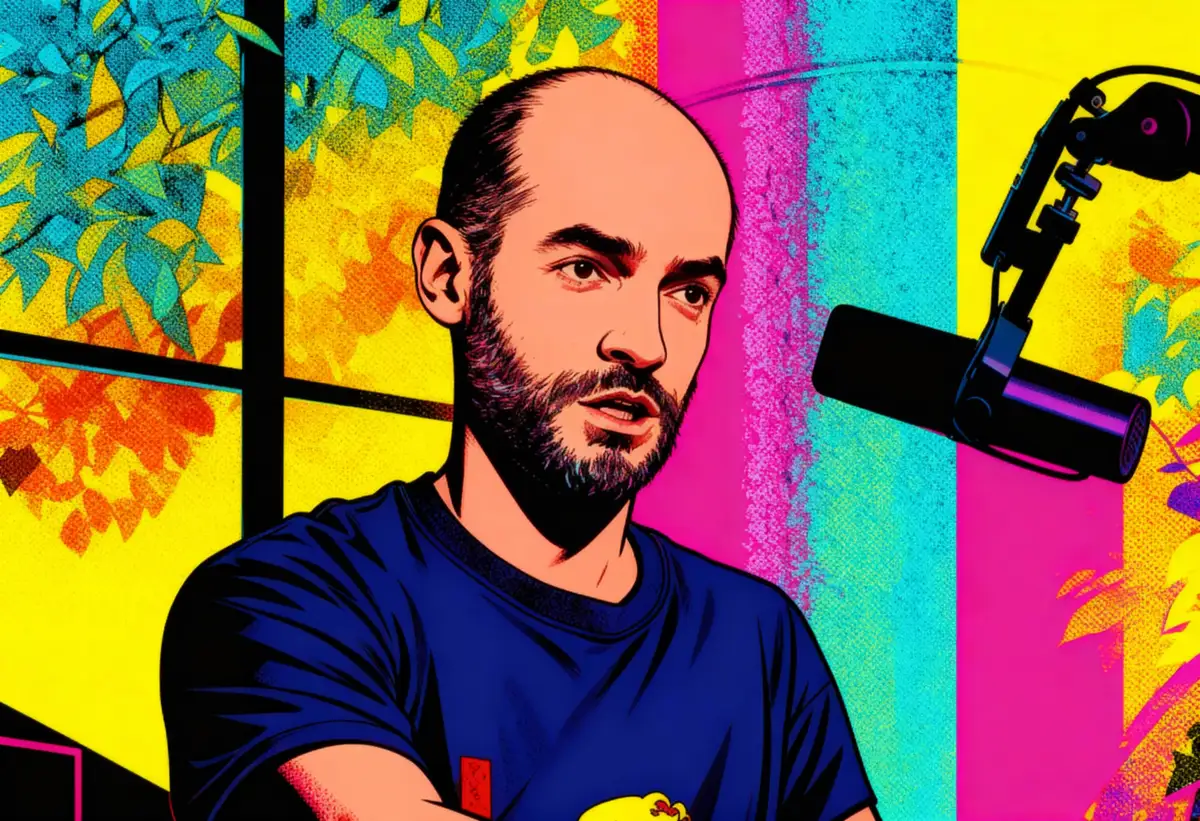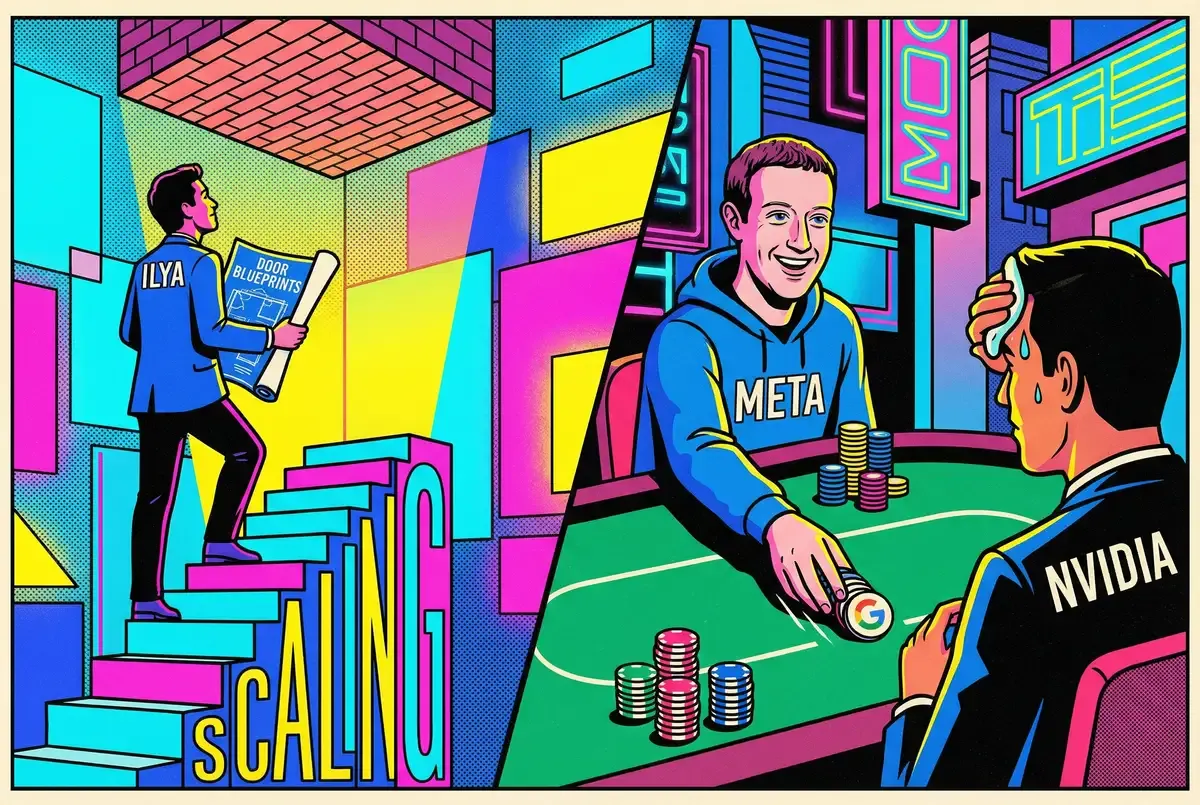Good Morning from San Francisco,
The man who helped prove AI scaling works now bets $3 billion it's already over. Ilya Sutskever, co-author of AlexNet and architect of GPT-3, argues the paradigm he validated has hit its ceiling. Pre-training data is finite. Current approaches "will peter out." The industry has more companies than ideas.
Meanwhile, Meta's talks with Google about buying TPUs sent Nvidia shares tumbling. Wall Street saw defection. The actual story is simpler: leverage. Meta invented PyTorch. Google's TPUs don't run it natively. Nobody's switching suppliers. Everyone's sharpening their elbows.
One pioneer questions the foundation. One customer rattles the dominant chipmaker. The people who built this era are already gaming the next one.
Stay curious,
Marcus Schuler
PS: We're taking a break for Thanksgiving. The next newsletter lands Monday, December 1st.
Sutskever Bets $3 Billion That AI's Scaling Era Is Already Over

The researcher who co-authored AlexNet and helped build GPT-3 now argues the paradigm he validated has hit its ceiling.
Ilya Sutskever's thesis cuts against every billion-dollar compute contract currently being signed: pre-training data is finite, current approaches "will peter out," and the industry has more companies than ideas.
His startup SSI raised $3 billion to test a different path, one focused on solving what he calls the fundamental problem—models generalize dramatically worse than humans despite crushing benchmarks. The funding gap with rivals like OpenAI, which spends $5-6 billion annually on experiments, shrinks once you subtract inference costs, product engineering, and modality fragmentation.
AlexNet trained on two GPUs. The Transformer paper used 64 at most. Paradigm shifts have never required maximum scale. Sutskever forecasts human-like learning systems in 5 to 20 years, emerging not from scaling but from research breakthroughs nobody has discovered yet.
His former co-founder left for Meta when acquisition talks surfaced at a $32 billion valuation. Sutskever stayed, betting his reputation on an idea the industry hasn't followed.
Why This Matters:
- Frontier labs optimized for scaling may find themselves poorly positioned if generalization breakthroughs emerge from research-focused competitors
- Investors face potential misalignment between current AI valuations and actual capability trajectories if Sutskever's thesis proves correct

Implicator PRO

The AI industry moves fast. Your strategic understanding needs to move even faster. Weekly analysis that cuts through the noise and delivers the insights that actually matter for business strategy.
We are introducing a weekly paid edition for readers who need deeper insight into the fast moving AI industry.
Every Tuesday at 6 AM PST, Implicator PRO will deliver a focused long form briefing that goes beyond the daily news cycle.
Each edition will examine one topic in depth, with strategic context, clear analysis of business implications, and a grounded view of what may come next. We are writing these briefings for founders, engineers, investors, policy makers, and anyone who needs to understand not just what is happening in AI, but why it matters.
The free daily newsletter stays exactly as it is. It will continue to land in your inbox every morning. Pro subscribers receive the weekly deep dive on top of all free content.
If you want to support this work and get deeper analysis each week, you can join here:
This week's deep dive was:

AI Image of the Day

Prompt:
a vintage minimal iranian breakfast tabel ,woman . style, soft texts visible on the some areas handwriting, flat hand-painted illustration
Meta's Google Chip Talks Are Leverage, Not Defection

Wall Street panicked when reports emerged that Meta, with $72 billion in planned AI spending this year, is negotiating to buy Google's TPUs. Nvidia shares dropped 7%. But the reaction missed the actual story.
Meta invented PyTorch, the deep learning framework that 4 million developers use alongside Nvidia's CUDA platform. Google's TPUs don't run PyTorch natively. They require a translation layer called PyTorch/XLA. For Meta to adopt TPUs at scale would mean undermining its own ecosystem.
The more plausible explanation: inference optimization for Llama. Meta needs its open-source models to run efficiently wherever enterprises deploy them, including Google Cloud. The reported 2027 timeline for data center deployment suggests this isn't urgent supplier replacement.
Meanwhile, Anthropic signed for one million Google TPUs and a separate $30 billion Microsoft/Nvidia partnership. Everyone's hedging, not switching. AMD's 8% drop, steeper than Nvidia's 2.6%, reveals markets understand custom ASICs threaten the alternative player more than the dominant one.
Nvidia's defensive X post about being "a generation ahead" confirms the leverage play worked.
Why This Matters:
- Enterprise AI buyers now gain real negotiating power as Google TPUs, Amazon Trainium, and AMD chips become credible leverage
- Nvidia's existential question isn't losing Meta. It's whether AI scaling laws continue to hold over the next decade

🧰 AI Toolbox
How to Edit and Generate Images with AI Using Natural Language
Nano Banana is Google's AI image generation and editing model, built into the Gemini app. Upload any photo and describe the changes you want in plain English, whether that's changing your outfit, blending multiple images together, or transforming your surroundings. The AI maintains character consistency across edits, making it easy to experiment with creative ideas.
Tutorial:
- Go to the Gemini app and sign in with your Google account
- Upload a photo you want to edit or start with a text prompt to generate a new image
- Describe your desired changes in natural language, such as "put me in a 90s grunge outfit" or "add a bookshelf to this room"
- Use multi-turn editing to refine your results, as the AI remembers your previous commands
- Blend multiple photos together by uploading several images and describing how to combine them
- Maintain consistent character appearances across different scenes and scenarios
- Create professional-quality edits without needing design skills
URL: https://gemini.google/overview/image-generation/
Better prompting...
Today: Strategic Thinking and Problem Solving
Argue against this idea as forcefully as you can. What are the 2–3 most damaging objections, and under what conditions would each one be fatal to the concept?"
Label: The Devil's Advocate. Surfaces weaknesses, risks, and failure conditions proactively.
AI & Tech News
OpenAI blames teen for chatgpt suicide, cites terms violation
OpenAI filed its first legal response to the ChatGPT suicide lawsuit, arguing that 16-year-old Adam Raine "misused" the chatbot by violating terms prohibiting minors from unsupervised use and forbidding self-harm discussions. The defense, which also invokes Section 230 protection, sets up the first major test of whether AI companies can deflect liability the way social media platforms have for decades.
ByteDance Leads China in Nvidia Chip Purchases Amid New Regulatory Hurdles
ByteDance emerged as the largest Chinese purchaser of Nvidia chips in 2025, according to sources with direct knowledge of the transactions reported by The Information. However, Chinese regulators have now prohibited the company from deploying these American-made chips in new data center facilities, signaling an escalation in Beijing's efforts to reduce technological dependence on U.S. suppliers amid ongoing trade tensions.
Apple Poised to Reclaim Global Smartphone Crown
According to research firm Counterpoint, Apple is set to overtake Samsung as the world's largest smartphone maker for the first time since 2011, ending Samsung's long-held dominance in the global smartphone market. The shift is being driven by strong consumer demand for Apple's iPhone 17 models, which have propelled the company back to the top position it last held more than a decade ago.
80,000+ Sensitive Credentials Exposed Through Popular Code Formatting Tools
Security researchers at watchTowr have discovered that more than 80,000 sensitive credentials were publicly exposed through the "Recent Links" feature on popular online code formatting tools JSONFormatter and CodeBeautify. The exposed data includes authentication keys, configuration files, and credentials belonging to organizations in critical sectors including banking, government agencies, and technology companies.
Uber Launches Fully Driverless Robotaxi Service in Abu Dhabi
Uber has begun deploying fully driverless WeRide robotaxis in Abu Dhabi, marking a significant upgrade from its initial robotaxi service that launched with safety drivers in the UAE in December 2024. The autonomous vehicles, designed by Chinese company WeRide, will operate exclusively on Yas Island, a popular tourist destination in the UAE capital.
Pony AI Shares Surge After Guangzhou Robotaxi Operations Reach Break-Even Point
Pony AI's Hong Kong-listed shares climbed 6.7% following the company's announcement that its robotaxi operations in Guangzhou have achieved break-even on a per-vehicle basis, marking a significant milestone for the autonomous driving firm. The company has set an ambitious target to expand its global robotaxi fleet to more than 3,000 vehicles by 2026, as it works to recover from a steep share price decline since its listing three weeks ago.
Didi Posts Strong Q3 Revenue Growth as International Expansion Accelerates
Chinese ride-hailing company Didi Global reported third-quarter revenue of approximately $8.28 billion, an 8.6% increase year-over-year, while net income rose to roughly $211 million compared to $127 million in the same period last year. The company's international business showed strong momentum with revenue surging 35% year-over-year to approximately $558 million, though overseas expansion continues to weigh on profitability with losses of around $240 million in that segment.
RAM and SSD Prices Spike Dramatically Amid AI Chip Shortage
Memory prices for DDR4 and DDR5 RAM as well as SSDs have surged dramatically in recent months, with some RAM kits now costing three times what they did just three months ago, driven by an ongoing AI chip shortage and panic buying among consumers. The price increases make this a particularly challenging time for consumers looking to build new PCs, according to a report by Andrew Cunningham at Ars Technica.
Victory Giant Founder Chen Tao Becomes Billionaire as AI Boom Drives 530% Stock Surge
Chen Tao, founder of Chinese AI circuit board manufacturer Victory Giant, has seen his company's stock soar more than 530% in 2025, propelling him and his wife to a combined net worth of $9.1 billion. The remarkable rise highlights how suppliers in the AI hardware ecosystem are benefiting enormously from surging demand, with Chen reportedly attending a private banquet hosted by Nvidia CEO Jensen Huang for key suppliers in Taiwan earlier this year.
Corporate "Digital Asset Treasury" Strategy Faces Reckoning Amid Cryptocurrency Rout
Strategy, the company led by Bitcoin advocate Michael Saylor, has seen its stock value fall more than 50 percent over the past three months as the broader cryptocurrency market has shed over $1 trillion in value. The sharp decline marks a significant setback for the corporate trend of holding digital assets as treasury reserves, with companies that adopted similar crypto-hoarding strategies now facing mounting losses as the market downturn exposes the risks of this approach.
Naver to Buy South Korea's Top Crypto Exchange Operator in $10.3 Billion Deal
South Korean tech giant Naver Corp. has agreed to acquire Dunamu Inc., the company operating the country's largest cryptocurrency exchange Upbit, in an all-stock transaction valued at $10.3 billion. The deal gives Naver control of Upbit, which commands more than 80% market share in South Korea's cryptocurrency trading market, marking a significant expansion of the internet company's presence in digital assets.
Sportable Founders Discuss Sensor-Based Sports Technology Revolution
In an interview with the Financial Times, Sportable co-founders Dugald Macdonald and Peter Husemeyer discussed their sensor-based sports technology company, which generates real-time data for professional sports teams, leagues, and broadcasters. The startup has developed smart sensor technology designed to provide detailed performance information to athletes, coaching staff, and fans, representing a growing trend in sports analytics and data-driven decision making.
Kioxia Stock Plunges 14% After Bain Capital-Backed Entity Sells $2.1 Billion in Shares
Japanese memory chipmaker Kioxia Holdings Corp. saw its stock plummet more than 14% on Wednesday after a Bain Capital-backed entity disclosed the sale of $2.1 billion worth of shares at a discount to market price. The significant selloff has amplified investor concerns about stretched valuations in the semiconductor sector, particularly among companies that have benefited from the artificial intelligence boom.
AI Recipe Slop Is Eating Food Bloggers Alive This Thanksgiving

Google's AI Overviews are confidently serving cooking instructions that have never touched a stove, and the damage is measured in both ruined dinners and destroyed livelihoods.
One AI-generated Christmas cake recipe suggested baking for four hours instead of ninety minutes. The result would be charcoal. Food creators report traffic drops between 40% and 80% as AI summaries intercept searches and serve Frankenstein recipes stitched from multiple sources without attribution.
The deeper casualty is cultural knowledge itself. The Woks of Life spent years building the only comprehensive English-language resource for Chinese cooking techniques, documenting ingredients that had no English documentation before. Google's AI now summarizes that work in panels that satisfy searchers without sending anyone to the source. The family questions whether publishing new guides makes sense anymore.
Clean Eating Kitchen went from ten employees to zero after losing 80% of traffic in two years. As human creators exit, AI systems will increasingly train on AI-generated content. The feedback loop ends with algorithms confidently generating recipes that no one has tested, for dishes that may not be possible to make.
Why This Matters
- Food bloggers face an existential holiday season as platforms extract their expertise without compensation or attribution
- Cultural cooking knowledge risks permanent loss as documentation economics collapse across underrepresented cuisines

🚀 AI Profiles: The Companies Defining Tomorrow

Suno turns text prompts into full songs with vocals and instrumentation in seconds. The Cambridge startup wants to make everyone a musician, whether the music industry likes it or not.
👥 Founders
Four Kensho alums founded Suno in 2022 after "abusing" their employer's audio models at night to make them sing. Michael Shulman, Georg Kucsko, Martin Camacho and Keenan Freyberg all play instruments. They got bored making AI for banks. Headquarters: Cambridge, Massachusetts.
🎵 Product
Type a prompt, get a finished song. Two to four minutes with vocals, instrumentation, arrangement. GPT-4 writes lyrics, Suno's proprietary model handles everything sonic. Ships on web, iOS, Android and inside Microsoft Copilot. The company acquired WavTool for DAW-style editing. 25 million people have made songs. Half hit the paywall on day one 🔥
⚔️ Competition
Udio sits closest but caved to labels and restricted commercial rights. Google Lyria, Meta AudioCraft and ElevenLabs lurk nearby. OpenAI reportedly cooking something tied to Sora. Suno's edge: dead-simple UX plus full commercial rights for paid users. No other major player offers both.
💰 Financing
$125M Series B (May 2024) led by Lightspeed at ~$500M valuation. $250M Series C (Nov 2025) led by Menlo Ventures at $2.45B. Backers include Nvidia's NVentures, Nat Friedman, Daniel Gross, Andrej Karpathy. Around $200M ARR from subscriptions alone.
🔮 Future ⭐⭐⭐⭐
Warner settled and signed a licensing deal. Universal and Sony still swing swords. GPU spend exceeds payroll. If courts force licensed-only training, the magic might dim. But 25 million creators don't lie. Suno could become the smartphone camera of songwriting, or get sued into a corner. High stakes, high ceiling.












